Related Research Articles
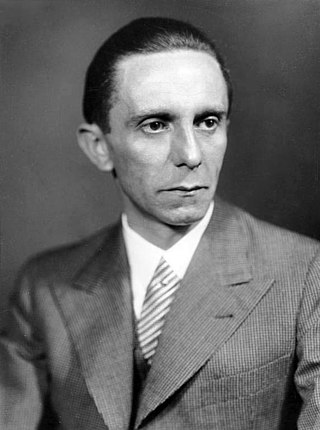
Paul Joseph Goebbels was a German Nazi politician and philologist who was the Gauleiter of Berlin, chief propagandist for the Nazi Party, and then Reich Minister of Propaganda from 1933 to 1945. He was one of Adolf Hitler's closest and most devoted followers, known for his skills in public speaking and his deeply virulent antisemitism which was evident in his publicly voiced views. He advocated progressively harsher discrimination, including the extermination of the Jews in the Holocaust.
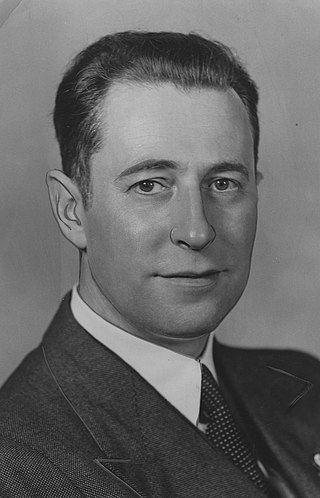
August Franz Anton Hans Fritzsche was the Ministerialdirektor at the Propagandaministerium of Nazi Germany. He was the preeminent German broadcaster of his time, as part of efforts to present a more popular and entertaining side of the Nazi regime, and his voice was recognised by the majority of Germans.
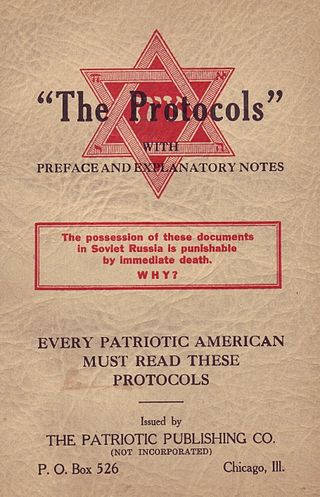
Black propaganda is a form of propaganda intended to create the impression that it was created by those it is supposed to discredit. Black propaganda contrasts with gray propaganda, which does not identify its source, as well as white propaganda, which does not disguise its origins at all. It is typically used to vilify or embarrass the enemy through misrepresentation.
Frederick Wilhelm Kaltenbach was an American of German ancestry who broadcast Nazi propaganda from Germany during World War II.

The propaganda used by the German Nazi Party in the years leading up to and during Adolf Hitler's dictatorship of Germany from 1933 to 1945 was a crucial instrument for acquiring and maintaining power, and for the implementation of Nazi policies.
Charlie and his Orchestra were a Nazi-sponsored German propaganda swing band. Jazz music styles were seen by Nazi authorities as rebellious but, ironically, propaganda minister Joseph Goebbels conceived of using the style in shortwave radio broadcasts aimed initially at the United Kingdom, and later the United States, after the German declaration of war on 11 December 1941.
Radio 1212 or Sender 11212 or Nachtsender 1212 was a black propaganda radio station operated from 1944 to 1945 by the Psychological Warfare Branch of the US Office of War Information (OWI) under the direction of CBS radio chief William S. Paley, who was based in London. Nachtsender 1212 broadcast from the Grand Duchy of Luxembourg using the former commercial radio facilities known as Radio Luxembourg, which had been occupied and then liberated from German control during World War II.

Nordwestdeutscher Rundfunk was the organization responsible for public broadcasting in the German Länder of Hamburg, Lower Saxony, Schleswig-Holstein and North Rhine-Westphalia from 22 September 1945 to 31 December 1955. Until 1954, it was also responsible for broadcasting in West Berlin. NWDR was a founder member of the consortium of public-law broadcasting institutions of the Federal Republic of Germany, the ARD.

Werner Naumann was a German civil servant and politician. He was State Secretary in Joseph Goebbels' Ministry of Public Enlightenment and Propaganda during the Nazi Germany era. He was appointed head of the Propaganda Ministry by Adolf Hitler in his last will and testament after Goebbels was promoted to Reichskanzler. Naumann was present in the Führerbunker in late April 1945. He eluded capture and led an underground existence under an assumed name until an amnesty in 1950. For the next few years, he headed a clandestine Neo-Nazi organization known as the Naumann Circle until it was exposed and he was arrested. He was subsequently judged to be a "Category II offender" in a denazification proceeding.

Das Reich was a weekly newspaper founded by Joseph Goebbels, the propaganda minister of Nazi Germany, in May 1940. It was published by Deutscher Verlag.
Germany Calling was an English language propaganda radio programme, broadcast by Nazi German radio to audiences in the British Isles and North America during the Second World War. Every broadcast began with the station announcement: "Germany calling! Here are the Reichssender Hamburg, station Bremen". Today, it is best known for its employment of several radio presenters jointly known as Lord Haw-Haw — most notably, William Joyce, who was German radio's most prominent English language speaker and to whom the name gradually came to be exclusively applied.

Wehrmachtbericht was the daily Wehrmacht High Command mass-media communiqué and a key component of Nazi propaganda during World War II. Produced by the Propaganda Department of the OKW, it covered Germany's military situation and was broadcast daily on the Reich Broadcasting Corporation of Nazi Germany. All broadcasts were authorized by the Reich Ministry of Propaganda under Joseph Goebbels. Despite the latter's attempts to temper excessive optimism, they often exaggerated the success of the German armed forces, the Wehrmacht, leading historian Aristotle Kallis to describe their tone as "triumphalist".
Radio propaganda is propaganda aimed at influencing attitudes towards a certain cause or position, delivered through radio broadcast. The power of radio propaganda came from its revolutionary nature. The radio, like later technological advances in the media, allowed information to be transmitted quickly and uniformly to vast populations. Internationally, the radio was an early and powerful recruiting tool for propaganda campaigns.
Leonard Banning was a British broadcaster of Nazi propaganda during World War II. In 1946, he was convicted of offences under the Defence Regulations and sentenced to 10 years' penal servitude. He was born in St Albans, Hertfordshire.
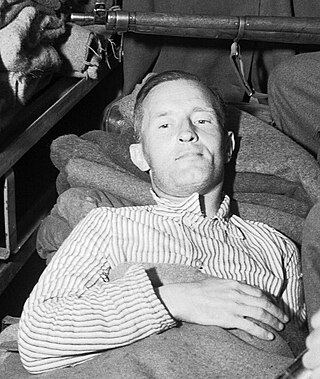
William Brooke Joyce, nicknamed Lord Haw-Haw, was an American-born fascist and Nazi propaganda broadcaster during the Second World War. After moving from New York to Ireland and subsequently to England, Joyce became a member of Oswald Mosley's British Union of Fascists (BUF) from 1932, before finally moving to Germany at the outset of the war where he took German citizenship in 1940.

Lord Haw-Haw was a nickname applied to William Joyce and several other people who broadcast Nazi propaganda to the United Kingdom from Germany during the Second World War. The broadcasts opened with "Germany calling, Germany calling," spoken in an affected upper-class English accent. The same nickname was also applied to some other broadcasters of English-language propaganda from Germany, but it is Joyce with whom the name is overwhelmingly identified.

Various kinds of clandestine media emerged under German occupation during World War II. By 1942, Nazi Germany occupied much of continental Europe. The widespread German occupation saw the fall of public media systems in France, Belgium, Poland, Norway, Czechoslovakia, Northern Greece, and the Netherlands. All press systems were put under the ultimate control of Joseph Goebbels, the German Minister of Propaganda.
Die Schlacht um Miggershausen is a short 13-minute animated film made in 1937. It was written by Paul Schwärzel and directed by Georg Woelz with Karl Sczuka composing the music and Heinz Goedecke providing the voice.
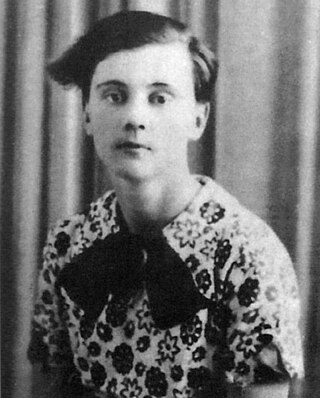
Susan Dorothea Mary Therese Hilton was a British radio broadcaster for the Nazi regime in Germany during the Second World War.

The clandestine press of the French Resistance was collectively responsible for printing flyers, broadsheets, newspapers, and even books in secret in France during the German occupation of France in the Second World War. The secret press was used to disseminate the ideas of the French Resistance in cooperation with the Free French, and played an important role in the liberation of France and in the history of French journalism, particularly during the 1944 Freedom of the Press Ordinances.
References
- ↑ O'Donoghue, David A. (1995) Hitler's Irish voices. The story of German radio's propaganda service, 1939-1945. Dublin: DORAS.
- ↑ "Nazi Clandestine Radio Broadcasting: Workers' Challenge transmission, 23 August 1940". Psywar.org. 2021. Archived from the original on 2021-02-07.
- ↑ https://www.google.com/books/edition/The_Secret_Conferences_of_Dr_Goebbels_Oc/xPieAAAAMAAJ
- ↑ Liburd, Liam (21 February 2017). "Haw-Haw and Radio War: Fake News in the 1940s". History Matters. Retrieved 4 February 2020.
- ↑ Berg, Jerome S. (2007). On the Short Waves, 1923-1945: Broadcast Listening in the Pioneer Days of Radio. Jefferson, North Carolina: McFarland & Company. p. 219. ISBN 978-0-7864-3029-1.